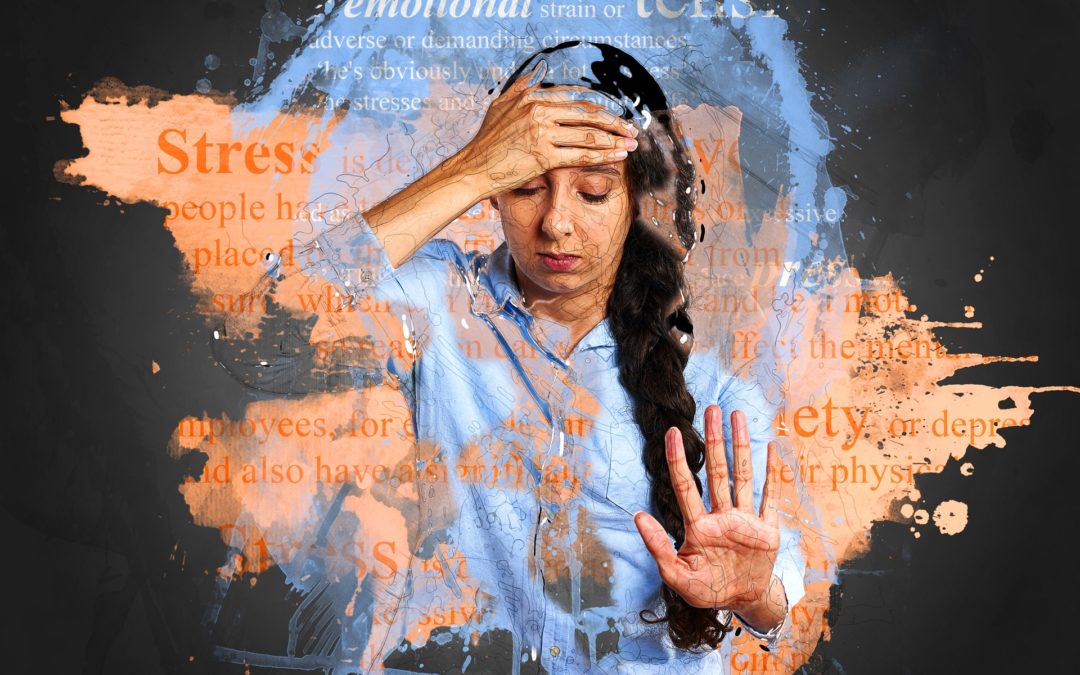“A ‘martyrdom culture’ is present, which encourages people to sacrifice their own wellbeing because of the critical importance of the work.”
Amnesty International (AI) Staff Wellbeing Review, January 2019.
In a recent blog I urged those of you who work in the non-profit sector to prioritise yourself over the “greater cause”, and to understand that you really are the most important cause that there is in this life.
I learnt the hard way that whilst we must be passionate about the causes we work for, we must be even more passionate about ourselves – our own health and wellbeing.
It is dangerous and counterproductive to work all the time and to sacrifice our own needs for “the great cause”. I know. I did it for years and I burnt out.
I want to take a moment to recognise just how hard – and in fact radical – it is to care for yourself when you work in sector that has an ingrained culture of martyrdom.
The AI Staff Wellbeing Review, published last week illustrates that the largest and most well known human rights NGO has a deeply entrenched, almost insurmountable martyrdom culture.
I highlighted the tragic irony of it all back in 2014 in an article on the ethical responsibilities of human rights NGOs. In that piece I set out some of the very obvious duties that NGOs with a mission to protect and promote human rights owe to the human beings that work for them – their own volunteers and staff.
Human rights NGOs have a raison d’être to protect human beings, yet ironically they often fail miserably to protect and care for the human beings that are their biggest asset and who keep them alive. One human rights professional I spoke to back in 2014 summed it up well:
“The human rights community enforces a sense of martyrdom in their defenders. . .fight for others rights without caring about yours. . . what a contradiction.”
I first worked for AI in 1999 and I risked my life for the cause. I travelled alone to Kosovo just after the NATO intervention to set up AI’s first ever field office and I investigated and documented the most horrendous crimes. I risked my life again for AI in 2003 on a harrowing, traumatic and dangerous mission to Afghanistan. There was no proper security on either mission, let alone any wellbeing support.
Back then we pleaded with AI leaders to put structures and mechanisms in place to protect our security and wellbeing. Nothing happened.
More than a decade later in 2015, I was part of a team researching vicarious trauma in the human rights, humanitarian and media sector. I found that despite repeated calls from staff and reviews nothing had changed. AI leaders were still largely unconcerned about the physical and mental wellbeing of their staff. Not even the most basic security, de-briefings or wellbeing support was being offered to staff working in, and on, dangerous conflicts who spent everyday of their working lives investigating, documenting and reporting on the most horrific things – mass killings, displacement, torture, sexual violence, war crimes, crimes against humanity and genocide.
It took the tragic suicides of two staff members in the summer of 2018 for AI to finally commission an independent and public review of staff wellbeing. And it was only because the press reported and started asking questions and enraged AI staff rallied together and spoke out. Under pressure, AI leaders eventually commissioned an independent investigation into the two suicides, and then a general review into the wellbeing of staff.
The review finds that a shocking 64% of staff either “strongly disagreed” or “disagreed” with the statement that “my wellbeing is a priority for Amnesty International leaders”. And 10% said they “did not know”?!
That’s a whopping 74% of staff working for an organisation that has a raison d’être to protect human dignity that either disagree, or do not know if their managers care about their their wellbeing.
That’s tragic irony. It is shameful and it is terribly sad. The result – to use the language of AI’s own reports – is “broken promises, human beings and shattered lives”.
Liz Griffin Liz runs specialist mentorship, coaching programmes and wellbeing workshops for non-profit professionals and organisations.
Liz is an International Coaching Federation accredited Coach (ACC), mentor, Fellow of Essex University Human Rights Centre and Extraordinary Professor, Centre for Human Rights, University of Pretoria. She has 25 years of experience working in the non-profit sector for the United Nations and NGOs, including Amnesty International. Find out more about Liz here.


Thank you for this eye-opener Prof! I’ll certainly share with others.
Thank you for writing this. As a former AI International Secretariat manager I am aware of denial and lack of appropriate training and supervision, which contributes to perpetuate on-going lack of care and unnecessary risks.
Superbly put. Some other issues come out from the martyrdom complex is the pressures it puts on national staff. The boss is working late again. Therefore the staff must put similar efforts, accumulated stress of managers trickling down, disempowerment as the expats hold all knowledge & decision making. National staff need calm & mindful leaders who give supported responsibilities not overly stressed martyrs. ☮️❤️
I think the “martyrdom culture” is a key point! I worked for 2 different AI sections as an intern and now I work in the field of consultancy about worker’s rights in France and I really think AI has a very progressive approach of worker’s rights compared with most workplaces.
From my experience, the balance between professional and private lives was highly valued, salary was good, they did not encourage extra hours for the sake of it and has a good process for discussing issues at work BUT I found that the Board members were sometimes not that sensitive and pushed our management to disregard our welfare (for example they believed unpaid interns doing essential jobs were a good thing because it saved donors money). Maybe the good workplace culture was mainly linked to the country I operated in but what I witness was extremely positive.
However, I really think the martyrdom culture is the key negative thing for the field. It’s one of the reasons why the Board members pushed us to work unpaid.
Nowadays, I work mostly for big companies from the private sectors but sometimes for NGOs as well. Recently, I was contracted by a big NGO very involved in human rights. They offered me really bad working conditions, the type of desk that would made me feel pain after 1 hour, located near unhealthy machines although it could have been improved really easily. During the day, they started to give me less and less. So after a couple of hours, I did what I do with my clients from the private sectors, I told them I could not work like that, needed better conditions and could not let them move my desk to the boiler room just because they needed space for something else. My clients from the private sector (including clients from otherwise problematic companies) always took that kind of requests about my working conditions seriously but no, the NGO staff member looked SHOCKED and replied : “We all work in bad conditions and we need that space!”. I refused to move and said I would not work in these conditions, and my contact looked genuinely horrified and confused. She told me “But what about the people we care for who need us to finish our project? Your conditions are not worse than mine!”. It struck me she thought that was an argument, that it was normal for us to all suffer at work for others, that my behaviour of basic self-care seemed shocking to her. It really felt like martyrdom complex in the sense that they had the resources and space to improve the working conditions, but it seems almost wrong for them to even think about it!
LIz I know this is from your heart and must be a complete truth. Yet the tragedy is no defenders for the human rights defenders. There must be some popular movement or popular political party must defend the defenders. Institutional defence without the State backing does not happen very easily.
I would like to contact you and discuss this situation, as an HR worker, manager of a local CSO, military veteran and journalist.
No one recruits well. I would argue it is more akin to a narcissistic culture. No one else could do it, When in reality the people doing the work is rather random. Some well connected project managers I knew arrived on Kosovo to sleep through meetings they were supposed to lead. Some people never lose sleep. Institutions have few memories. Tragedy is everywhere.